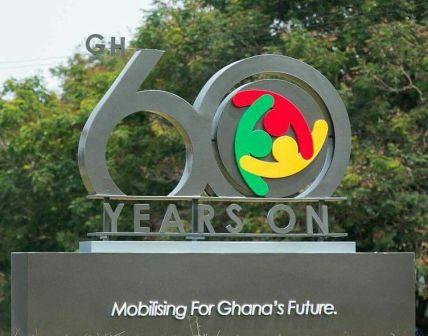Ghanaians’ dangerous tribalism, resolving the misunderstandings
The pronouncement by the Assin North Member of Parliament, from the opposition National Patriotic Party, the hot-headed Kennedy Agyapong, on the Accra-based Oman FM station, which he owns, that people from the Ewe and Ga ethnic groups should be killed in the Ashanti Region, once again opens the unresolved issues of tribalism in Ghana, 50 years after freedom from British colonial rule. Kennedy Agyapong’s stupidity also reveals that Africans do not understand each other, that ancestrally they come from the same cultural tree, and why can easily destroy each other without reason. (Photo: Kofi Akosah-Sarpong, author)
In Kennedy Agyapong, images of the Rwandan genocide flicker. The hell in Somalia flashes. Ewes living in Kumasi, the Ashanti regional capital, said they are living in “fear.”
Despite the seeming view that Ghanaians are civilized and the deadly disease of tribalism is weak in Ghana, now and then cracks occur and Ghana is reminded of the lethal disease of tribalism. The fact is Kennedy Agyapong’s tribalistic utterances didn’t start from nothing. It grew out of the tribalism flowing in the air, more so as the December general elections approaches and the democratic system goes crazy and foul language becomes the order of the day in an atmosphere of indiscipline.
The Ewes are perceived to be overly tribalistic. Dr. Kofi Awoonor, an Ewe and chair of Ghana’s Council of State, book The Ghana Revolution is heavily viewed as tribalistic and “full of insults and innuendos against Ashantis.” There had been several calls for Dr. Kofi Awoonor to be kicked out as chair of the Council of State since he is seen as a tribalist and isn’t fit morally for the high position. The Ga ethnic group is seen as so tribalistic that they have been re-naming national edifices on their land after themselves, against national legislations, dangerously invoking tribal reasons and ignoring the fact that the national edifices were built with Ghanaians’ tax money.
In both ethnic groups, they have riskily overlooked the precarious implications of their actions in the ethnic make-up of Ghana. But that doesn’t mean Kennedy Agyapong, from the Fante ethnic group and a graduate of Fordham University, USA, should call for the killing of Ewes and Gas, more so as a legislator who is expected to project higher national consciousness than parochial tribalism. Some people are arguing that Kennedy Agyapong, a millionaire businessman, isn’t fit to be a Member of Parliament and should be booted out of parliament.
In Kennedy Agyapong, it appears the earlier policies that made Ghanaians less tribalistic compared to other African states need re-tooling. The deeper root causes of the mounting ethnic tensions are yet to be diagnosed to influence larger policy decisions. The national civic education programme that is to profoundly socialise the Ghanaian into genuine full-fledged person devoid of tribalism is yet to be grounded conveniently into Ghanaian cultural values that addresses ethnic diversity and issues, especially respect for sincere ethnic differences without condoning tribalism and thinking of killing other ethnic groups or dehumanising them.
The fact that in some parts of Ghana the mere biometric registration of Ghanaians for the upcoming December general elections degenerated into tribal conflicts reveal Ghanaians’ shaky civic consciousness. The prominent Accra-based The Ghanaian Chronicle, in analysing how for the past 50 years tribalism has been contained in Ghana, wrote that, “To cup it all, is inter-marriage among the various ethnic groups, which has made it virtually impossible for one tribe to attack the other, though there are a few exceptions … Ghana’s first President, Osagyefo Dr. Kwame Nkrumah, might have anticipated this happening in the country, and therefore, decided to introduce the boarding school system, which like inter marriage, has also contributed to our success story today …
“Because Frafras, Ewes, Ashantis, Nzemas, Dagombas, and Hausas, just to mention but a few, ate, bathed and played together whilst they were in boarding schools, they do not have any hatred towards each other. In fact, students from these tribes see themselves as brothers and sisters, rather than the ethnic group they belong to … Whilst counting on these positive developments, which have put us together as a country, it would be wrong for one to assume that there would be no tribal conflict in Ghana if we allow the elites in society to preach tribal hatred. … In some of the African countries, inter marriages among the ethnic groups are considered sacrilegious. A typical example is Rwanda, where both Tutsis and Hutus do not see each other as one people, and the consequences of this need not be repeated here.”
While Kennedy Agyapong’s senseless ethnocentrism is extreme and have been condemned vehemently by almost all the ethnic groups, it is not just Kennedy Agyapong, Ewes or Gas that must confront the dark elements of tribalism, Asantes, Fantes, Frafras and the other 100 ethnic groups, too, must recognize their place in the ethnic make-up of Ghana, especially within the flourishing liberal democratic system that could be threatened by tribalism. This is in an atmosphere where there are no official multicultural policies.
In the absence of this such as Canada’s Multiculturalism policies, Ghanaians are expected to responsibly blend naturally and avoid ethnic groups coalescing into ghettoes. Ghanaians have been mixing through inter-ethnic marriages and internal migrations. For 12th century tribal practices cannot be imported into 21st century Ghana that is supposed to be civilized in a climate of tolerance in an increasingly pluralistic and diverse population. Most Ghanaians want to have a life where they can live in harmony with others. Despite their intimidations, people like Kennedy Agyapong and the few Ewe and Ga elites’ promotion of extreme tribalism, or rejecting pluralist Ghanaian values and facts, do not speak for all the 100 ethnic groups that form Ghana.
Ga tribalism troubles? Yes! The Accra Sports Stadium was re-named Ohene Djan Stadium by the former ruling National Patriotic Party in 2004. Then the Ohene Djan Stadium was re-named again as Accra Sports Stadium by the Accra Metropolitan Assembly (AMA) September, 2010, with pressure from some Ga traditional rulers and elites. The Ga ethnic group, whose land the Ohene Djan Stadium is on, claim the stadium is on their land and so, should bare their tribal name.
The first naming was innocently nationalistic, the second on purely vain and troubling ethnic feelings. For, if all the 100 ethnic groups are to behave like the Ga, there will be chaos across Ghana. The Ga tribalistic behaviours, like Kennedy Agyapong’s mindlessness, set off an irate debate that had larger implications than AMA had thought of. In the Ga and Kennedy Agyapong, there are perverse interpretations of Ghanaian ethnicity. The ethnic controversies have also opened the debate about where the entire Ghanaian, and for that matter African, ethnic groups came from to their present abode. Kennedy Agyapong, who faces legal indictments, and AMA raise insightful public talks for Ghanaians on the dangers of tribalism.
As Kwame Anthony Appiah, the Ghanaian-British-American philosopher at Princeton University and author of Cosmopolitanism: Ethics in a World of Strangers (2006), will tell the Ga ethnic group and Kennedy Agyapong, we live in a world where our most insignificant actions, such as tribalism, can affect unknown millions. Kwame Anthony Appiah’s work is an uplifting antidote to the Ga ethnic group and Kennedy Agyapong’s tribal scare-mongering gloom.
Jacob Ade Ajayi, the eminent Nigerian historian and editor of General History of Africa (1989), who has done a lot of work on where the African ethnic groups came from to their present abode, will be a clarifier for the Ga ethnic group and Kennedy Agyapong’s obdurate interpretation of the Ghanaian ethnicity. No matter the apparent differences, Africans are bound by the interconnection of common values and humanity. Kennedy Agyapong says he has children with an Ewe woman but yet, bewilderingly, enjoins Asantes to kill Ewes and Gas.
In the Ga ethnic group and Kennedy Agyapong is the beginning of reflection and the turning point for Ghanaian ethnicity. Reflectively, Kwame Anthony Appiah will say the Ga ethnic group and Kennedy Agyapong are responsible for any other Ghanaian, no matter the ethnic group they come from. This is also an African traditional communal value and fact. Kwame Anthony Appiah (himself an Asante), if we are go by his Cosmopolitanism and Education for Global Citizenship (2008), will argue that being Ghanaian outweigh being Ga, Fante, Frafra or any of the other 100 ethnic groups that form Ghana.
Why, the Ga or Ewe tribalist would ask? Kwame Anthony Appiah would answer that different cultures are respected “not because cultures matter in themselves, but because people matter, and culture matters to people” and the fact that Ghanaians have obligations to each other that are bigger than just being Ga, Frafra, or Ewe and the fact that Ghanaians “should never take for granted the value of life and become informed of the practices and beliefs of others.”
In a way, that is Ghanaian cosmopolitanism, a way of life, as the Nigerian writer Oseloka Obaze would argue, that hinges “on good grace, good neighborliness, shared values, and respect for rule of law, order and authority as a way of everyday living.”
The disturbing nature of the Ga ethnic group thinking is viewed in the fact that historically the Ga ethnic group came from Ile Ifeh in Nigeria and settled on the Akwapin and Aburi ethnic groups’ lands. Instructively, hear Otubour Gyan Kwasi II and his Aburi Traditional Council, “… the AMA re-naming of the stadium on the basis that it has no leaning with Ga culture and customs was unfortunate, reminding the assembly that the land being occupied by Gas was given to them by the Akwapims and the people of Aburi when they first came from Ile Ifeh in Nigeria … the Tetteh Quarshie Memorial Hospital in Akwapim named after a Ga and the Komfo Anokye Teaching Hospital in Kumasi among others.”
The Aburi Traditional Council’s position is pan-Ghana, more nationalistic and educational than ethnic. It also raises the fact that in the long run all the 100 ethnic groups that form Ghana are simultaneously migrants, constantly mixing and come from the same cultural family. The slight differences are geographic. Nigeria’s Jacob Ade Ajayi, with his style of rigorous research that presented new pathways in African historiography, will not have any disagreements with Otubour Gyan Kwasi II and the Aburi Traditional Council but will disagree sharply with the Ga ethnic group.
Sometimes issues like Kennedy Agyapong’s hate speech and the Ga ethnic group’s unGhanaian stadium nonsense might be civilizing and healthy. It helps thinking and clears some of the entangling tribalism cobwebs in the Ghanaian’s brain. It also helps clarifies the African person, and that itself might be a kind of exorcism, especially in situations where some of the issues running the Ghana nation-state are convoluted and unhelpful. But the disputes should be driven by values, facts and civility despite the various jaundiced opinions expressed.
But the deeper facts are that, the cultural values driving the over 100 Ghanaian ethnic groups are practically the same (holding geography constant) and could be skillfully appropriated to resolve the Kennedy Agyapong and the Ga ethnic group controversies. For the larger advancement of Ghana, all the 100 ethnic groups that form Ghana need each other more than any of them might envisage, especially so with high inter-ethnic marriages.
Kennedy Agyapong and the Ga ethnic group’s tribally twisted thinking might help all Ghanaians to look plainly at the whole ethnic issue cosmopolitanly. And responsively discuss how Ghanaians’ civilizational character, driven by their traditional values, fit into the plural, liberal and the developing democratic values.
By Kofi Akosah-Sarpong
Stay with Sierra Express Media, for your trusted place in news!
© 2012, https:. All rights reserved.




